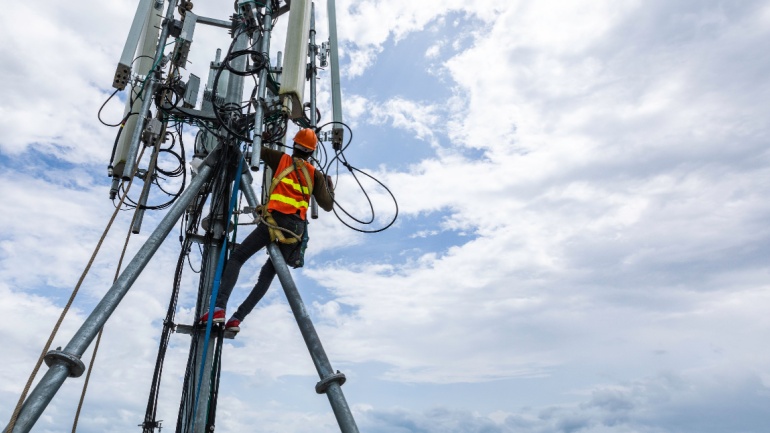Air Wireless has unveiled wireless DOCSIS technology, revolutionizing the delivery of wireless broadband services. This innovation allows cable TV providers to easily expand their data offerings. The new wireless DOCSIS solution competes with Fixed Wireless Access (FWA), posing a challenge to existing cable TV wireline broadband services and reshaping industry dynamics.
Major UK business groups are urging telecoms regulator Ofcom to extend the automatic compensation scheme for broadband outages to encompass all businesses. This demand highlights frustrations over unreliable broadband services impacting productivity and economic growth. Existing compensation covers only domestic-grade services, leaving many businesses without recourse for connectivity issues.
Point Topic’s recent analysis reveals that global fixed broadband connections will rise to 1.39 billion by the end of this decade. While some regions will reach near-saturation, others will see significant growth opportunities.
Come April 10, as Federal Communications Commission’s new rules take effect, ISPs with over 100,000 subscribers will have to display ‘nutrition’ labels detailing broadband plans. These labels will reveal data about costs, speed, privacy, and more – boosting transparency. However, this also poses administrative challenges for ISPs, especially when changes occur.
In a strategic move aimed at bolstering its foothold in the competitive telecommunications arena, US telecom giant AT&T has unveiled its Internet Air service for business customers, marking a significant shift in its approach to 5G fixed-wireless access (FWA).
RDK Management (RDK) today announced that it has joined the Wireless Broadband Alliance (WBA) and that the two organizations’ members plan to collaborate on industry-wide initiatives such as Operator Managed Wi-Fi, Wi-Fi 7, and IoT. RDK and WBA share many common members across broadband operators and technology companies that are committed to deploying RDK for Broadband (RDK-B).
Digital Infrastructure Minister Julia Lopez MP addresses the need for shared infrastructure to tackle excessive fibre network duplication. She spotlights rural areas, where public perception of full fibre deployment is significantly affected by perceived uncontrolled infrastructural rollout. This prompts a change in guidelines to involve communities in the roll-out process, helping operators extend their networks without hindering local approval.
VMO2 faced a substantial loss of £3.3 billion in 2023, worsened by a £3.1 billion goodwill impairment rooted in increased capital costs. While their debt soured under challenging economic conditions, they still managed to attract 64,000 new broadband and 47,000 mobile customers. Nevertheless, revenues witnessed a slight tumble as consumer fixed income dipped and the B2B sector lagged.
The FCC has recently approved rule changes aimed at streamlining access to the 70 GHz, 80 GHz, and 90 GHz spectrum bands, immensely benefiting airborne and waterborne vehicles and promoting more innovative broadband service options. These updates will also impact the way backhaul service for 5G operates, enabling smaller, lower-cost antennas to be utilized, and ensuring a more efficient use of the spectrum through modifying the link registration process.
In a surprising move, Blackpool-based Internet Service Provider (ISP) Yayzi has outpaced its larger competitors by introducing a 2.3-Gbps consumer broadband service. Leveraging CityFibre’s XGS-PON network, the service, which boasts a symmetrical throughput of up to 10 Gbps, sets a new standard in the UK ISP market.













